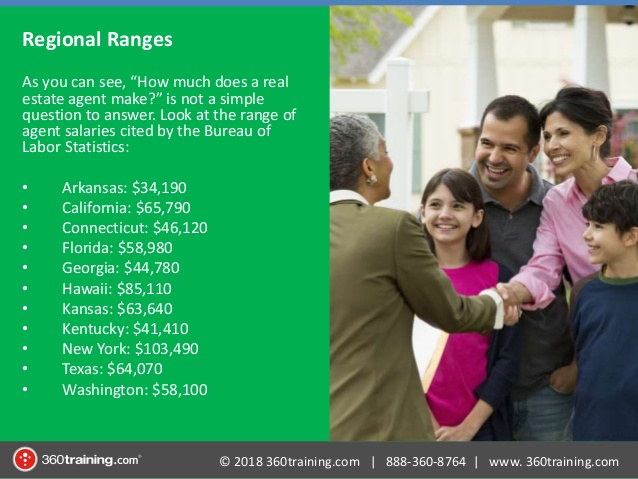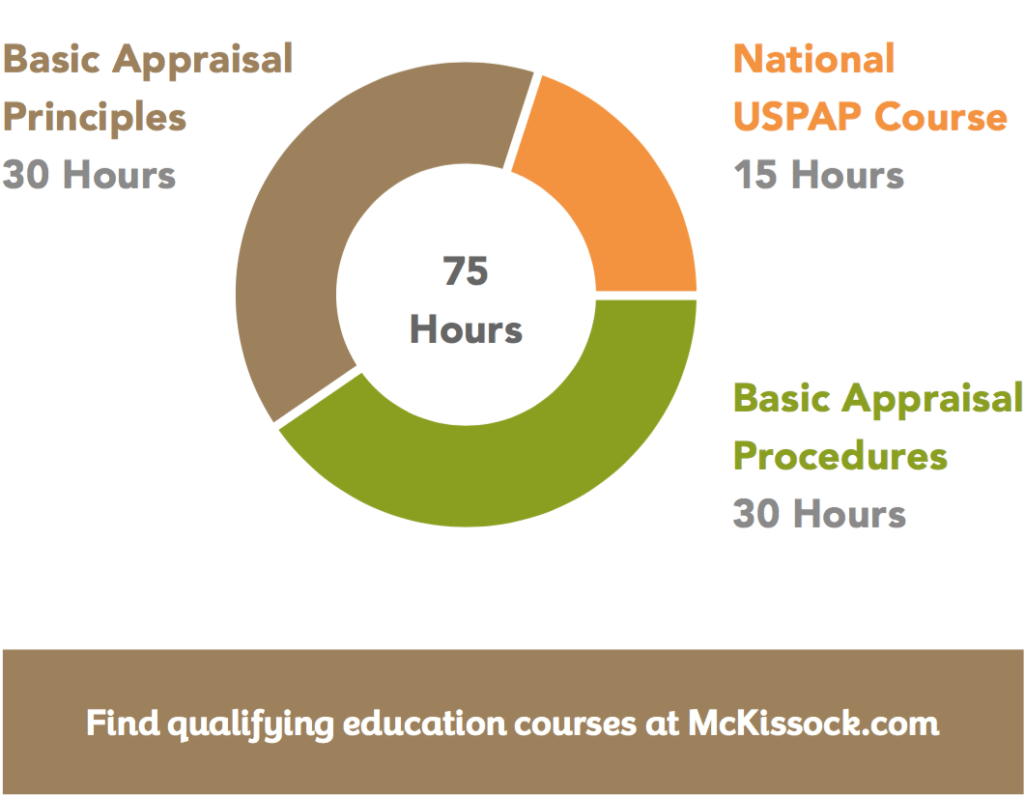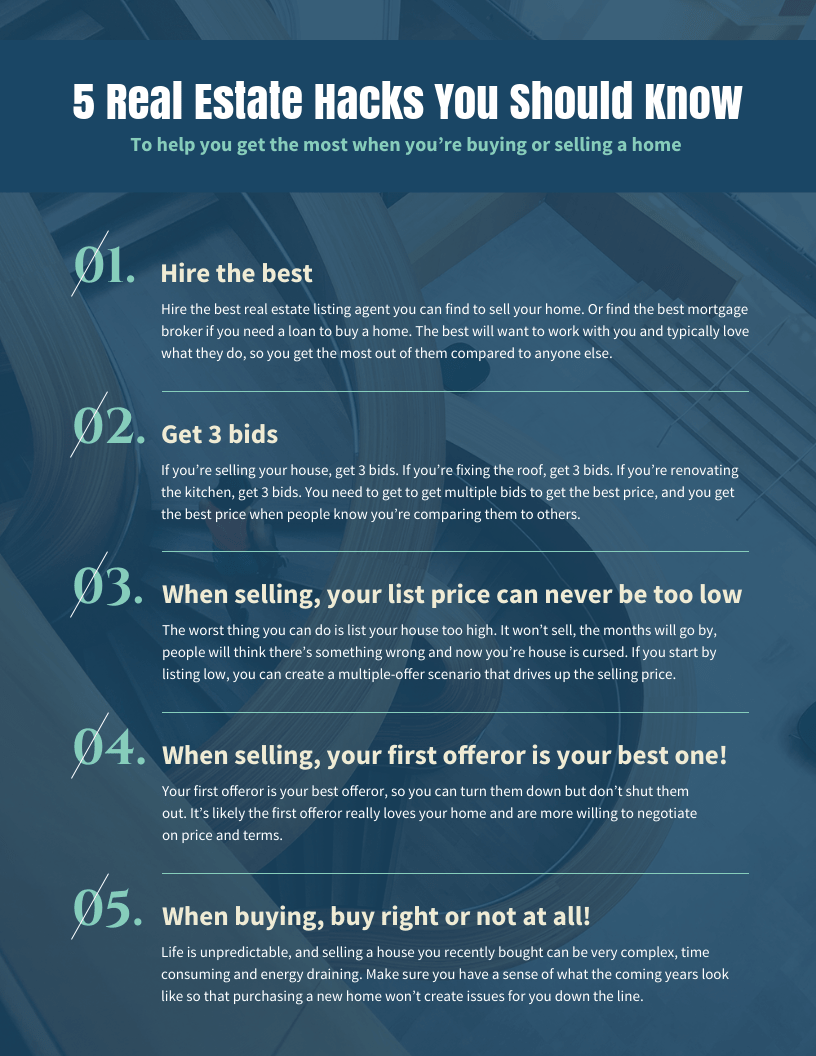
To become a Colorado Real Estate Agent, you must complete several courses. These classes will cover the basics and more. You can choose to attend a local class, or you can enroll in an online course. You have two options to prepare for the state-specific exam. There are several accredited schools that offer both in-person and online courses. First step towards becoming a licensed real-estate agent is to choose the option that suits you best.
The Colorado Real Estate Exam has two sections. The National section has 80 question and requires a score at least 60. The State section is shorter at 75. Each section provides four choices for answers. It will improve your chances of passing by taking the time to complete both parts of the exam.
The state-specific exam may not be easy but it's definitely possible. Many real estate schools offer in-person and online classes, as well as review materials to help you succeed. If you're choosing which school to attend, ensure they have a strong reputation for high pass rates. In addition, be sure to choose a school with an introductory tutorial. This lesson gives you an overview about Colorado's realty industry.

A comprehensive errors and omissions policy is another must-have. The Colorado Division of Real Estate has a program that can help you and protect your clients. A good policy costs between $200-300 per year depending on what coverage you need.
You will need to take a 168-hour course in order to get a Colorado real property license. This requirement can be waived by some schools if the student is an active member or has completed a prelicensing course.
Once you have completed your coursework, you can take the Colorado Real Estate Exam. To be eligible for a Colorado real-estate license, you will need to be 18 years or older. You will also need a valid credit card. You should also have a certified copy of your license history. Depending on the type of license you're pursuing, the cost of your education will vary.
Along with the state-specific exam and fingerprint background checks, you will also need to provide them. You'll need to provide information about all criminal convictions from the last 10 years. A basic criminal background exam will be required.

It's easy to get a Colorado realty license. It is important to be fully prepared if you plan to move from Colorado. To ensure you meet all requirements, it is a good idea to consult the authorities before you jump on the next plane. To avoid any problems, you might need to submit a letter from your current licensing authority.
If you are looking for an easy way to get your license, then you might want to take an online course in real estate. This will save you time and effort.
FAQ
Do I require flood insurance?
Flood Insurance protects against damage caused by flooding. Flood insurance helps protect your belongings and your mortgage payments. Find out more information on flood insurance.
How can I find out if my house sells for a fair price?
Your home may not be priced correctly if your asking price is too low. You may not get enough interest in the home if your asking price is lower than the market value. Our free Home Value Report will provide you with information about current market conditions.
Can I purchase a house with no down payment?
Yes! Yes. There are programs that will allow those with small cash reserves to purchase a home. These programs include government-backed mortgages (FHA), VA loans and USDA loans. You can find more information on our website.
Is it possible for a house to be sold quickly?
If you have plans to move quickly, it might be possible for your house to be sold quickly. You should be aware of some things before you make this move. First, you will need to find a buyer. Second, you will need to negotiate a deal. Second, prepare the house for sale. Third, advertise your property. Finally, you should accept any offers made to your property.
Is it better for me to rent or buy?
Renting is often cheaper than buying property. It's important to remember that you will need to cover additional costs such as utilities, repairs, maintenance, and insurance. Buying a home has its advantages too. For instance, you will have more control over your living situation.
What should I look for in a mortgage broker?
A mortgage broker helps people who don't qualify for traditional mortgages. They search through lenders to find the right deal for their clients. Some brokers charge fees for this service. Others offer no cost services.
What is a reverse loan?
A reverse mortgage lets you borrow money directly from your home. It allows you to borrow money from your home while still living in it. There are two types available: FHA (government-insured) and conventional. A conventional reverse mortgage requires that you repay the entire amount borrowed, plus an origination fee. FHA insurance will cover the repayment.
Statistics
- This seems to be a more popular trend as the U.S. Census Bureau reports the homeownership rate was around 65% last year. (fortunebuilders.com)
- The FHA sets its desirable debt-to-income ratio at 43%. (fortunebuilders.com)
- When it came to buying a home in 2015, experts predicted that mortgage rates would surpass five percent, yet interest rates remained below four percent. (fortunebuilders.com)
- It's possible to get approved for an FHA loan with a credit score as low as 580 and a down payment of 3.5% or a credit score as low as 500 and a 10% down payment.5 Specialty mortgage loans are loans that don't fit into the conventional or FHA loan categories. (investopedia.com)
- 10 years ago, homeownership was nearly 70%. (fortunebuilders.com)
External Links
How To
How do I find an apartment?
When you move to a city, finding an apartment is the first thing that you should do. This requires planning and research. It includes finding the right neighborhood, researching neighborhoods, reading reviews, and making phone calls. Although there are many ways to do it, some are easier than others. The following steps should be considered before renting an apartment.
-
Online and offline data are both required for researching neighborhoods. Online resources include Yelp and Zillow as well as Trulia and Realtor.com. Offline sources include local newspapers, real estate agents, landlords, friends, neighbors, and social media.
-
Review the area where you would like to live. Yelp and TripAdvisor review houses. Amazon and Amazon also have detailed reviews. You may also read local newspaper articles and check out your local library.
-
For more information, make phone calls and speak with people who have lived in the area. Ask them about their experiences with the area. Also, ask if anyone has any recommendations for good places to live.
-
Check out the rent prices for the areas that interest you. Consider renting somewhere that is less expensive if food is your main concern. On the other hand, if you plan on spending a lot of money on entertainment, consider living in a more expensive location.
-
Find out all you need to know about the apartment complex where you want to live. For example, how big is it? What's the price? Is it pet friendly What amenities are there? Can you park near it or do you need to have parking? Do you have any special rules applicable to tenants?